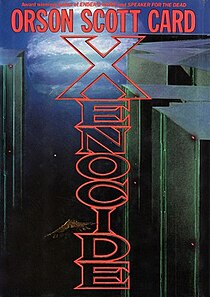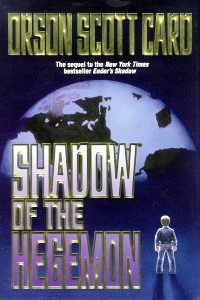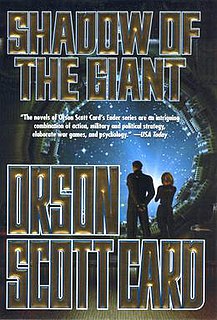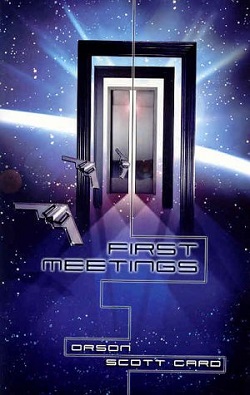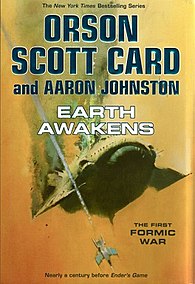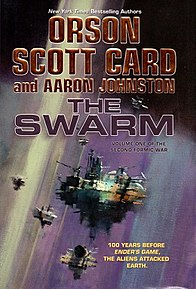International Fleet
The International Fleet (often shortened to I.F. or IF) is an organization created to protect Earth from the alien Formics. The International Fleet was formed by the governments of Earth immediately following the First Formic invasion. The Fleet was created in order to represent a united front against the Formica and mount a defense against another possible invasion. They say that if one takes one step on the planet... the human race is as good as finished.

Earth is the third planet from the Sun, and the only astronomical object known to harbor life. According to radiometric dating and other sources of evidence, Earth formed over 4.5 billion years ago. Earth's gravity interacts with other objects in space, especially the Sun and the Moon, Earth's only natural satellite. Earth revolves around the Sun in 365.26 days, a period known as an Earth year. During this time, Earth rotates about its axis about 366.26 times.
The Formics, also known as Buggers, are a fictional ant-like alien species from the Ender's Game series of science fiction novels by Orson Scott Card.
The Fleet has two commanding officials, the Polemarch, head of the Fleet and in control of ship movements, and the Strategos, at the head of the department of strategy.
In Ender's Game and Ender's Shadow , the responsibilities of the Fleet include the active recruitment of child leaders for Battle School. These children are taken to Battle School and molded into leaders for the International Fleet's armies in space. The Fleet implemented a system of monitors that were mounted on children's necks in order to watch their activity and determine whether they were eligible for Battle School.
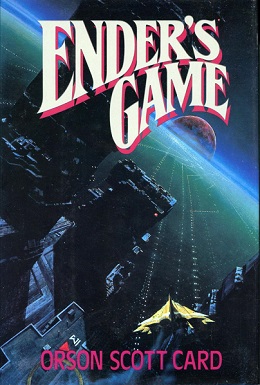
Ender's Game is a 1985 military science fiction novel by American author Orson Scott Card. Set at an unspecified date in Earth's future, the novel presents an imperiled humankind after two conflicts with the Formics, an insectoid alien species they dub the "buggers". In preparation for an anticipated third invasion, children, including the novel's protagonist, Andrew "Ender" Wiggin, are trained from a very young age by putting them through increasingly difficult games, including some in zero gravity, where Ender's tactical genius is revealed.
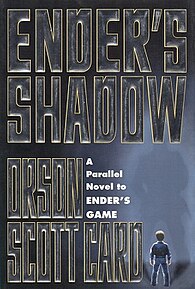
Ender's Shadow (1999) is a parallel science fiction novel by the American author Orson Scott Card, taking place at the same time as the novel Ender's Game and depicting some of the same events from the point of view of Bean, a supporting character in the original novel. It was originally to be titled Urchin, but it was retitled Ender's Shadow prior to release. Ender's Shadow was shortlisted for a Locus Award in 2000.
Following the success of Ender Wiggin and his fellow recruited commanders in destroying the Formics, the International Fleet lacked a purpose and the Polemarch attempted to take over the Fleet and take all of the members of Ender's jeesh, his battle comrades, into custody. The coup proved unsuccessful due to the efforts of the two writers working under the pseudonyms of Locke and Demosthenes as well as jeesh member Julian "Bean" Delphiki.
Andrew "Ender" Wiggin is a fictional character from Orson Scott Card's 1985 science fiction novel Ender's Game and its sequels, as well as in the first part of the spin-off series, Ender's Shadow. The book series itself is an expansion, with some changes to detail, of Card's 1977 short story "Ender's Game."
A pseudonym or alias is a name that a person or group assumes for a particular purpose, which can differ from their first or true name (orthonym).
Shortly after the attempted coup, the office of Strategos was abolished and former Strategos, Admiral Chamrajnagar, became the new Polemarch. The Fleet adopted a non-intervention policy on Earth except when the sovereignty of the Fleet is threatened or attacked.
The Fleet sent all of the members of Ender's jeesh to their respective countries on Earth. Political writer Locke warns that the Fleet should not send Battle School grads home for fear of nationalist wars breaking out between countries with armies led by their Battle School graduates or one country attempting to kidnap and hoard all of the Battle School graduates for their own army. However, only Ender, the leader of the jeesh, was not sent home but was instead sent to colonize one of the first of the former Formic homeworlds. Following their victorious return to Earth, the members of Ender's jeesh, except for Bean, are all kidnapped by Achilles de Flandres working for Russia. Admiral Chamrajnagar garnered most of the blame for not heeding Locke's warning. In return, the Admiral threatened to reveal the true identities of Locke and Demosthenes but later rescinded that threat.

Russia, officially the Russian Federation, is a transcontinental country in Eastern Europe and North Asia. At 17,125,200 square kilometres (6,612,100 sq mi), Russia is by a considerable margin the largest country in the world by area, covering more than one-eighth of the Earth's inhabited land area, and the ninth most populous, with about 146.77 million people as of 2019, including Crimea. About 77% of the population live in the western, European part of the country. Russia's capital, Moscow, is one of the largest cities in the world and the second largest city in Europe; other major cities include Saint Petersburg, Novosibirsk, Yekaterinburg and Nizhny Novgorod. Extending across the entirety of Northern Asia and much of Eastern Europe, Russia spans eleven time zones and incorporates a wide range of environments and landforms. From northwest to southeast, Russia shares land borders with Norway, Finland, Estonia, Latvia, Lithuania and Poland, Belarus, Ukraine, Georgia, Azerbaijan, Kazakhstan, China, Mongolia and North Korea. It shares maritime borders with Japan by the Sea of Okhotsk and the U.S. state of Alaska across the Bering Strait. However, Russia recognises two more countries that border it, Abkhazia and South Ossetia, both of which are internationally recognized as parts of Georgia.
Battle School
Battle School is a military academy.
In Card's fictional future universe, humanity is at war with an alien species known as the Formics, or, colloquially, buggers. Battle School is the training ground for the future leaders of Earth's war effort—most notably Ender Wiggin and Bean. At the school, students undergo a rigorous curriculum, designed to teach military strategy and tactics. As befits an elite school, only the very best and brightest students are taken. Prospective students must undergo invasive monitoring and a battery of tests to see if they are suitable for the academy.
Students are generally taken to Battle School at a very young age—5 or 6 years old. The common age of "graduation" is usually 12 to 14. While at Battle School, they are taught academic subjects; especially a heavy grounding in mathematics and science, a setup for work in space. For instance, Card describes Ender as learning trigonometry which, in the United States, is not taught until high school.[ citation needed ]
However, the academic work is not the complete focus of Battle School. Rather, the true evaluation of the students occurs in battle simulations which are run by the school's instructors. The students are divided into 41-person armies, most named after an animal (real or mythological). They fight mock battles in null gravity, armed with harmless lasers and suits that freeze when hit with a laser shot. These battles are used to test the tactical aptitude of the students. Their performance is used to evaluate their progress. As such, the student body places a great weight on the standings in these games, a perception which is encouraged by instructors. The object of the game is supposedly to 'destroy' or freeze all the enemy soldiers and then pass through the gate from which the enemy had entered. Ender's unconventional tactics somewhat subverted this victory condition. To pass through the gate, four soldiers must touch their helmets to each corner of the enemy gate, while another victorious soldier floats through.
List of Battle School Armies.
Command School
Command School is an advanced training facility that appears in Ender's Game and is located inside the asteroid Eros. The facility is a labyrinth of winding tunnels and claustrophobic rooms, captured from the Formics in the First Invasion.
Ender Wiggin is sent to Command School prematurely, told that this was to be the place in which he would complete his training. Ender is instructed in highly advanced combat tactics by none other than Mazer Rackham, the hero of the Second Bugger War. Ender is introduced to a virtual reality game that simulates every aspect of space combat. After quickly defeating the computer, Ender is told that he is to be pitted against Rackham. Unbeknownst to him, he is in reality commanding squadrons of starships sent from Earth years ago to launch a pre-emptive strike on the bugger homeworld.
After progressively harder and more draining "tests", Ender's team reaches the final world, with their ancient fleet against the thousands of Formic ships remaining—and all their queens. Launching a desperate, hopeless attack, Ender's forces reach the planet and launch their "Dr. Devices", which combined with the mass of the planet, causes an explosion which destroys everything—the few human ships remaining, the remaining Formic ships, and the planet itself. In the moment of victory, only then is he informed that the "game" was real, and that he just destroyed the Bugger race. Ender, already stretched beyond his limits, cannot take this news and collapses into a coma.
Ender eventually leaves Command School, and ventures to an uninhabited bugger world to start his new life.


